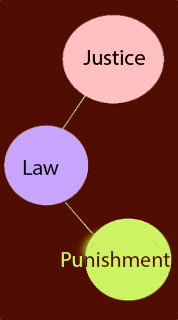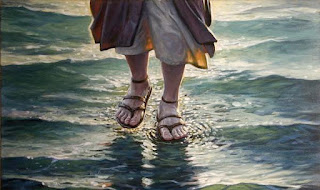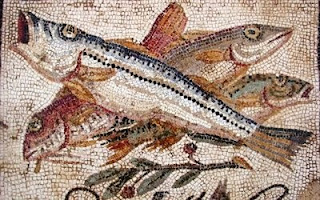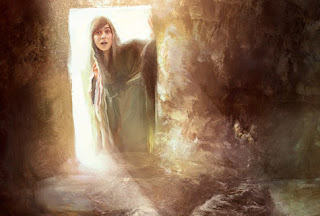
To question the plan of salvation today, rather than a hasty supposition, is a popular gesture, similar to raising one’s hand to correct the script of a work in full representation.
Thus, when the audience is muted, the natural man rises up as an illustrious man, when, however, he is incapable of constructing a single verse or filling a second armchair. Thus, enchanted with his own voice, he disserta campanudo and with feeling he raises dust and enraptured the unwary, claiming God… A little humanity please!

Accepting the plan and its orography teaches us about «the land from which [we were] taken» (42:2) and consequently reveals to us the nature of the clay of which we are made. By plunging our hands into the earth and by sweating in its cultivation, we participate in its movements and seasons by receiving the light that is in its cycles (D&C 88:44).
As we study Alma’s book and his advice to an impulsive Corianton, the plan of salvation that begins in Eden becomes clear to us as well.
Reaching out
Being that our situation has not changed much, the intention to reach out and eat of the tree of life is growing, but so is the divine determination to prevent it. And that, which in principle appears as an impediment, is actually a concession. We were deprived of an unproductive eternity without hope for a time of probation rich in nuances and opportunities, so it is wrong to demand from God the same conditions of yesteryear and extort the earth to provide them.
The annals of Eden are empty of content, nothing to highlight from that man and woman who are wealthy and secure. Nothing to disturb and uplift them. In that permanent childhood of the uncultivated man, they would have all the time in the world to do nothing. When we fell, thanks to the breadth of Eve’s criteria, we were endowed with a bowl of time granted with the death that made us fallen and free.
After Eden, man stands before the Universe, that is, only before justice. Like the explorer lost in a desert, he is exempt from mercy and subject to the implacable law of the sands. Yet no one rises up to point out the cruelty of deserts, but, unlike Job, if they attribute nonsense to God and his geography of salvation (Job 1:22).
The walls of the abyss
Alma clarifies that once banished from Eden, «man became lost forever, yea, they became fallen man.» (42: 6). We can not climb the walls of the deep abyss of the fall, there is no support or crack that allows us to escape. All «[vain illusion] and pride of the children of men» (1 Nephi 12:18) or any device that decorates that well, will not shorten our return home.
It is not to be missed of those «… when an hungry man dreameth, and, behold, he eateth; but he awaketh, and his soul is empty» (Isaiah 29: 8)
Only he and his plan of salvation can change the hidden geometry of that deep and probative abyss to transform it into a sphere where

«All truth is independent in that sphere in which God has placed it, to act for itself, … as all intelligence also;» (D & C 93:30)
In the open cause of the Universe against the fallen aspirant, there was only one sentence:
«that all mankind were fallen, and they were in the grasp of justice; yea, the justice of God, which consigned them forever to be cut off from his presence.» (42:14)
The natural man with rapture, is indignant before that justice, but he uses a blunt language for the details, he is dominated by laziness in discerning good from evil, tempered in his thought to hypothermia, does not think for not hurting, does not question for not appearing and does not declare for not offending. He fears the majorities and is led by the statistics of the spacious building. Those who encouraged Lucifer towards his fall.
«Have you no enemies? Have you never told the truth or loved justice?» (Ramon y Cajal)
The infinite sands
In the cold Universe of light and truth, neither mercy nor punishment nor a plan of salvation is necessary. There is no need to redeem matter, nature «abideth the law of a celestial kingdom,» (D & C 88:25).
Our situation in it, recalls the journey of the Jaredites «… did also prepare a vessel, in which they did carry with them the fish of the waters.» (Ether 2: 2) Here, on the same trip, two different plans. We know about Jared and his family, but what was God’s plan for those fish? Surely there was, but to what much annoyance, we should not underestimate the God of the birds and their vines of all kinds.
The man Adam was a nuisance to a Universe of shining sands, just and fair, but here we are, being part of that journey in time within the Earth vessel. Therefore there was a purpose for the traveling fishes in Jared’s plan and one of redemption for the man fitted with justice and with the agreement of the whole orb of the heavens.
The profile of justice is clear and definite, the Universe likes these forms, but man was misty and unpredictable. How to govern the heavens with such a perfect and demanding ally and at the same time
with the man Adam, fickle and fickle? Can water be drawn from the sands?
Let us leave the natural man, who raises his hand in the armchair courtyard, while he exclaims, «How can this scriptwriter allow deserts? and let us go to that gestated plan before words.
The Fitting of the Plan of Salvation
The folded justice

We have to suppose that, before man, there was only justice and folded into it, the law. It was a point without further dimensions because «the earth was without form, and empty» (Moses 2:2) and even afterwards «obeys the law of a heavenly kingdom, because it fulfills the measure of its creation and does not transgress the law;» therefore it was not necessary to unfold the righteousness of God in its corners for an obedient space and kingdom.
As the Universe expanded from a point, so the plan of salvation unfolded from justice, and as it was required, it manifested itself in the forces that constituted it within.
Expansion

In bringing man Adam and Eve to the earth, there was an expansion of the plan, which was not yet of salvation, for the fall had not taken place. This elemental point, the law and the punishment, was severed. In its first manifestation we read, «Of every tree of the garden thou ayest freely eat: But of the tree of the knowledge of good and evil, thou shalt not eat of it: for in the day that thou eatest thereof thou shalt surely die.» (Genesis 2;16-17)
Superficially, we consider that garden and its laws as an idyllic place, however, there were no mistakes admitted and it was not possible to learn from them. Behind Adam was the law and punishment, and in front of it was a sad and lonely void.
When the natural man denounces the permissiveness to the injustice that exists in the world, only a diffuse longing for Eden emerges. But a single day there and he would notice the cold sword of justice suspended over his head. Then he would understand […he who has created us from the beginning, and is preserving us day by day, giving us encouragement to live, move, and act according to our own will, and even sustaining us moment by moment…].
Just as Adam, the astronaut out of earthly glory, knows that a bad decision can put him at the mercy of absolute emptiness, where there is no forgiveness. That is why the humble one recognizes that from the frontier void towards him, mercy abounds and even the breath to live receives it from the hand of the Lord «with a grateful heart in all things. (D&C 62:7)
The opposite and complementary

Adam, being Michael in the pre-existence, was impregnated with a special constitution, highlighting his strong will to obey. This compelled Lucifer to strive in his task as nowhere else, to the point of exceeding his attributions, mixing lies «Ye shall not surely die» (Moses 4:10) and truths «your aeyes shall be opened, and ye shall be as gods, bknowing good and evil» (11) That is why he went from offering to temptation and from there to cunning and lying. But Eve, with sharpness and open-mindedness, knew how to extract what was necessary from this scene, and together with Adam, they made a wise but painful decision.
By meditating on both, we can see the concurrence of the characters and qualities necessary for the expected outcome. The conflict which resulted in a complete unfolding of the plan of salvation. The Father, knowing the path to follow, provided the means to redeem mankind, the extension of this being greater than his world.
«God himself atoneth for the sins of the world, to bring about the plan of mercy, to appease the demands of justice» (Alma 42:15) These demands are from third parties, those who have not been created or done, nor can they be. The solution is provided by them, Father and Son are who pay the price.
A single set
Lehi teaches us a key aspect of this «For it must needs be, that there is an opposition in all things….Wherefore, all things must needs be a compound in one; wherefore, if it should be one body it must needs remain as dead…». (2 Nephi 2:11) And one set is what existed in Eden, whose only interaction with Adam and Eve was death. That is why the plan of mercy was presented before justice, opposite in form and complementary.

This plan of opposing forms, faces contrary natures like law and repentance or justice and mercy. Alma 42 describes the engineering used in the construction of the plan. This unique chapter in all the scriptures is difficult to hurry, it always contains more.
«… the plan of mercy could not be brought about except an atonement should be made;» (15)
The great achievement of this plan is to compensate the void in justice with its equivalent in mercy, so that the result is zero, or a perfect balance. It is the same equivalence between space and energy. It expands as the energy grows. The equivalent in restoration are the elements and intelligence.
Atonement is in contact with each component of the plan, sometimes to act and others to receive the action and that communication knot compensates for the great unevenness between us and justice. The Savior is the one that agglutinates and overcomes the tensions of the parties but at the cost of a great price.
Let’s see the two main movements of this plan.
Movement 1. Justice, law and punishment
«But there is a law given, and a punishment affixed… otherwise, justice claimeth the creature and executeth the law, and the law inflicteth the punishment; if not so, the works of justice would be destroyed, and God would cease to be God..» (22) This downward movement is one-way and is the first to occur. The divinity depends on him because «Intelligence, or the light of truth, was not created or made, neither indeed can be..» (D&C 93:29) Therefore God deals with this governing entity of the Universe that can be guessed when we read «…For, behold, the mystery of godliness, how great is it!» (D&C 19:10)
The God who brings us restoration also observes the laws.
Movement 2.
Atonement, mercy, repentance and forgiveness.

Let’s see this movement, «and mercy claimeth the penitent, and mercy cometh because of the atonement» (23) and the idea is completed by reading «a repentance granted; which repentance, mercy claimeth; « (22) So that repentance, to which we willingly accede, achieves the same rank as a law before the Universe and its justice. And this is extraordinary.
Yet the words of the plan of mercy, are solicitous, grant and claim, for the exercise of the priesthood is by «persuasion, by long-suffering, by gentleness and meekness,» (D&C 121:41).
Sentimental thinking
Without getting rid of the limited alphabet of his complaints he is unable to articulate a question that leads him to reasonable doubt. Hopelessness always comes out of his mouth, pointing to the void out there.
Meanwhile, the actor of the plan of salvation addresses us and declaims.
«Fear not, little children, for you are mine, and I have overcome the world,» (D&C 50:41).




Dejar una contestacion